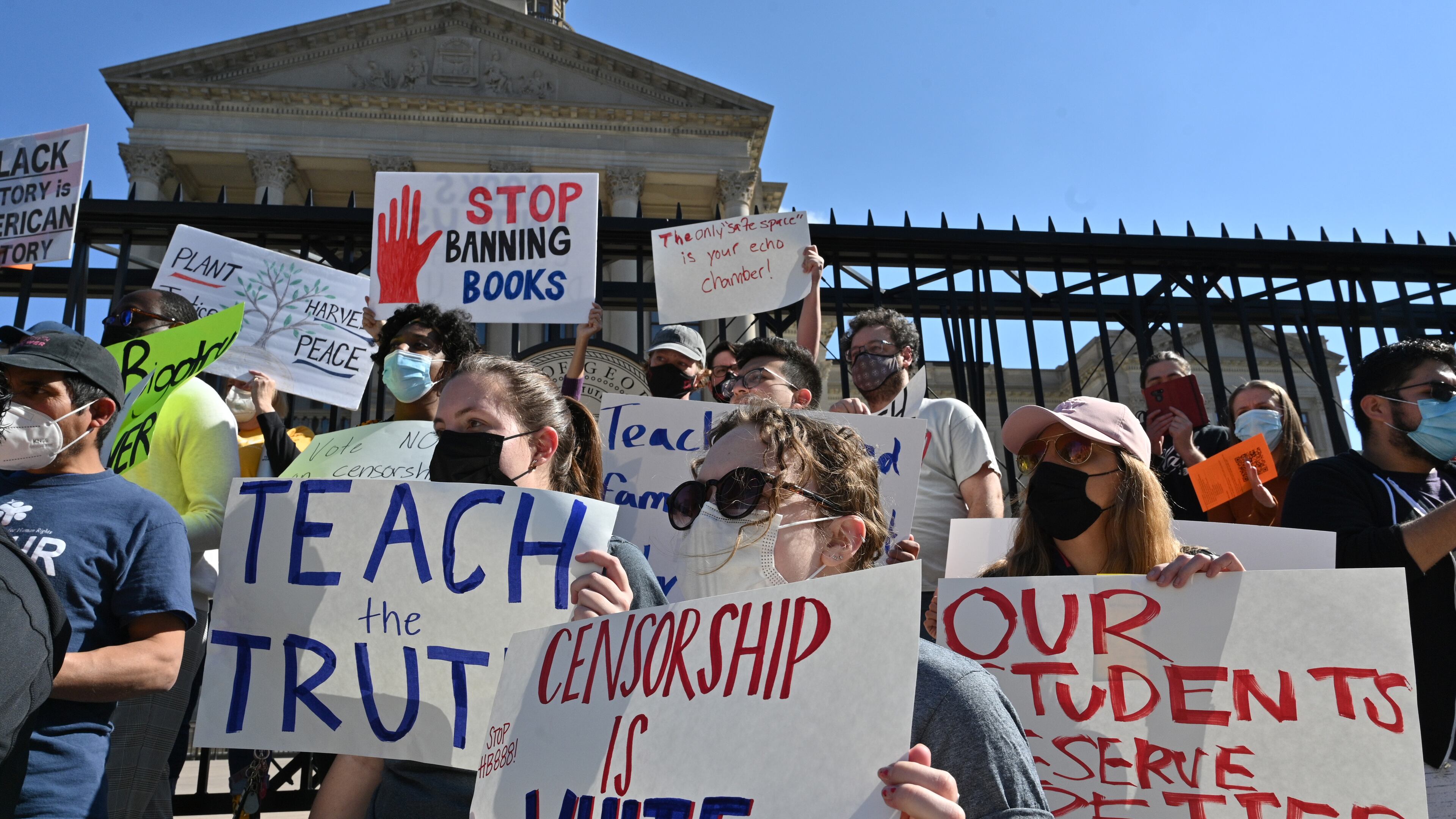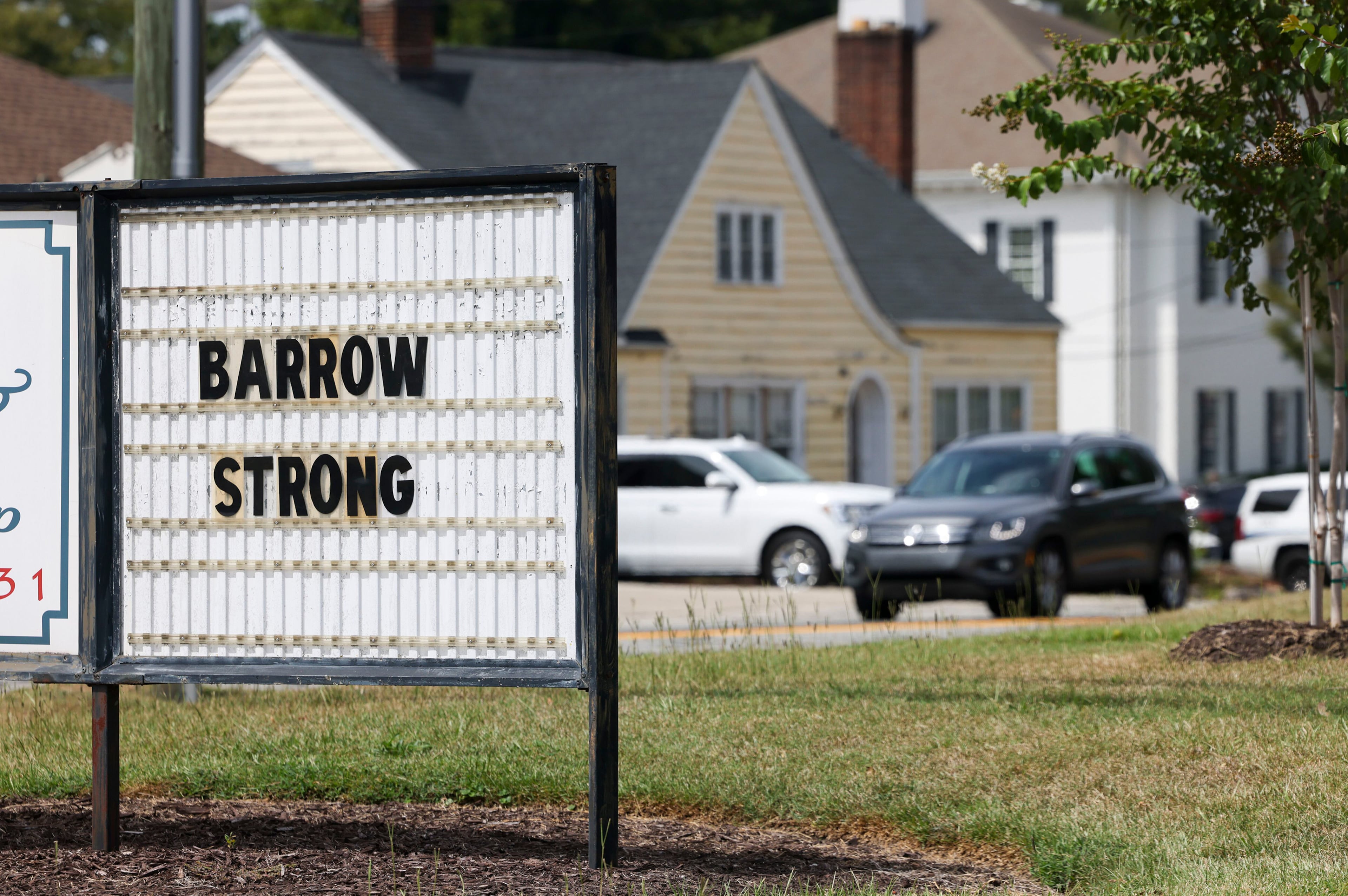If Georgia lawmakers want to know why teachers quit, a mirror could help

During legislative hearings, lawmakers often avert their view from the elephant in the room no one wants to address. At last week’s hearing on why Georgia teachers flee classrooms, state senators managed to shut their eyes to the equivalent of a dozen Ringling Brothers and Barnum & Bailey pachyderms dancing the conga.
In the nearly two-hour hearing, elected officials discussed the probable causes behind the growing disillusionment of Georgia educators, including low starting salaries, worsening student behavior, COVID-19 challenges, no planning time, too few subs and limited career ladders.
Here is what legislators never mentioned and state education staff never referenced in a clear reluctance to tug at anyone’s blinders: Since 2021, teachers in Georgia have been criminalized, portrayed as evil doers in orchestrated and venal political attacks decrying public education as indoctrination and educators as foot soldiers in a war against conservative values.
In that time, the Georgia General Assembly passed laws that conveyed mistrust in teachers and constrained how and what they taught. The laws streamline the process for yanking books from school libraries, restrict classroom conversations about race and promote parental rights.
No wonder a recent survey of teachers by the Professional Association of Georgia Educators found 47% of respondents reported they are burned out. Burnout is the main reason teachers gave for leaving, followed by student behaviors and salary. Forty-five percent of teachers said they had trouble covering their living expenses all or most of the time, and 66% took on student loan debt.
At the joint hearing of the Senate Higher Education and Education and Youth committees, PAGE consultant and education policy expert Claire Suggs said more than half the responding teachers were very unlikely or unlikely to recommend the profession to young people. “Over half of teachers reported that their workload is not manageable most of the time or all the time. Our teachers in the K-5 group were most likely to say that their workload was not manageable,” said Suggs.
Data presented at the hearing show an uptick in enrollment in Georgia teacher prep programs, but the graduates aren’t staying in the classroom long, especially math and science teachers lured to higher paying careers and teachers of color who often wind up in higher poverty schools with more pressures and demands.
As with the rest of the country, most of Georgia’s teaching force — 67% — is white. Black teachers now account for 27% of the state’s teachers, while Hispanic teachers account for 3%, said Monica Flamini of the Governor’s Office of Student Achievement.
With an increasingly diverse student body, Georgia needs to bolster its recruitment and retention of Black and Hispanic teachers, she said. Citing research showing Black students who have a Black teacher in early elementary school are 13% more likely to graduate, Flamini told legislators, “This is a really stunning and important policy implication.”
Yet, Georgia has not only backed away from teaching diverse history; it’s also retreated from a visible commitment to recruit and hire a diverse workforce. Last year, the Georgia Professional Standards Commission stripped the words “diversity,” “equity” and “inclusion” from the guidelines for recruiting and preparing public schoolteachers, in deference to the demonization of the terms by the governor and General Assembly.
State Sen. Nan Orrock, D-Atlanta, tried to point out the tap-dancing elephants in the room, questioning whether there has been fallout from the commission’s actions. “Could that have impacted our ability to recruit and retain teachers who would be a real benefit to student advancement? Are we going to blink at that and go on?”
When her query was met with silence from her colleagues and state education experts, Orrock and Georgia got their answer.
Yes, we are going to blink at that and pretend we can’t see it.



